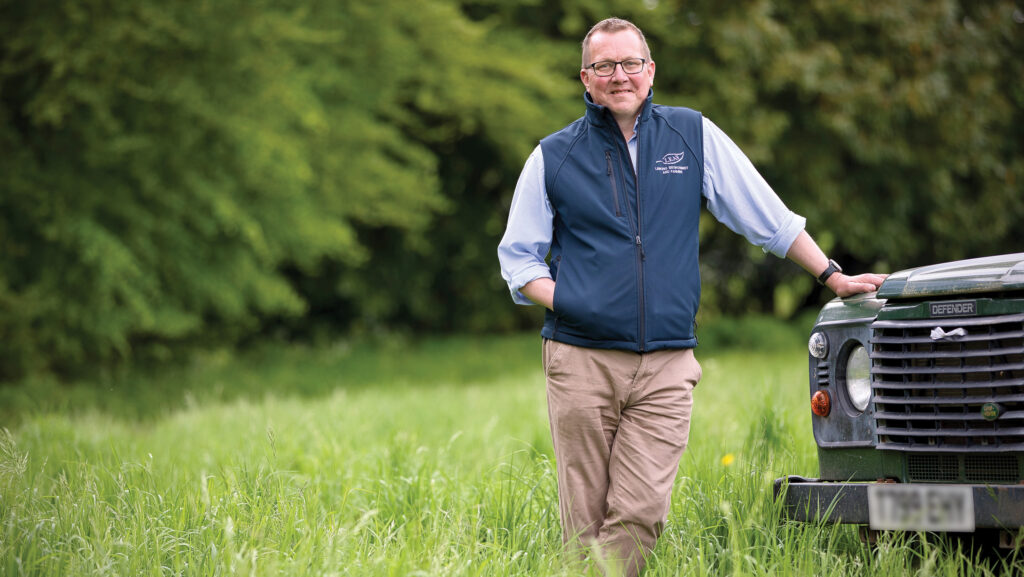Transition Farmer: Private funding to help agroforestry
 Andy Bason © Richard Stanton
Andy Bason © Richard Stanton Growing winter wheat at Newhouse Farm without nitrogen (N), in line with its Transition goal to cut carbon emissions, resulted in a yield penalty.
However, the crop still produced 5.6t/ha compared to 8.9t/ha in wheat established with farm-standard fertiliser inputs.
The Hampshire-based farm has been working with Southern Water on trialling reducing N use on its combinable crops.
See also: The grant support available to landowners for tree projects
Farm facts: Newhouse Farm, Northington Down, Alresford, Hampshire
- 800ha main farm
- Annual rainfall – 770mm
- Soil type – Loam
Transition goal progress
Approximate percentage of progress towards completion:
- 30% cut in carbon emissions – 66%
- Establish 10ha of agroforestry – 66%
- Establish 10ha of woodland – 66%
Farm manager Andy Bason says while less wheat was grown when no N was applied, the penalty was lower than anticipated.
“If you take savings made on the fertiliser into account, the returns on both crops would be very similar,” he says.
Trimming fertiliser will help the business achieve its ambition to reduce carbon emissions by 30%. Project work with Southern Water is informing decision-making.
“Southern Water has a very good farm-knowledge transfer team, which has been really beneficial,” says Andy.
“While their aim is to reduce ground water nitrates, for us there is a good financial incentive from using less N going forward.”
Agroforestry support
The water company also contributed towards the costs of replanting a 10ha deer-damaged agroforestry project after Defra closed its Capital Grants scheme.
Andy had already lined up a nursery to supply the fruit trees.
“We were fortunate that Southern Water stepped in because planting is time-critical, the nursery was anxious to know when we would be in a position to take the trees,” says Andy.
“So many of these environmental projects need to be planned months in advance, and when the plug is pulled on support schemes at the last minute, it doesn’t give farmers the confidence to engage.”
Unlike other farming businesses, Newhouse Farm secured a Sustainable Farming Incentive agreement as it submitted an application months before Defra closed the application process.
One option selected was AGF1, to maintain very low density in-field agroforestry on less sensitive land.
The agroforestry trees planted in January established well, with stronger guards and stakes to protect trees from deer and wind damage which destroyed the first attempt in 2023.
With the 10ha of agroforestry established, together with 10ha of woodland established in 2023 funded by an English Woodland Creation Offer grant, Newhouse Farm is at least two-thirds of the way to achieving its Transition goals.
